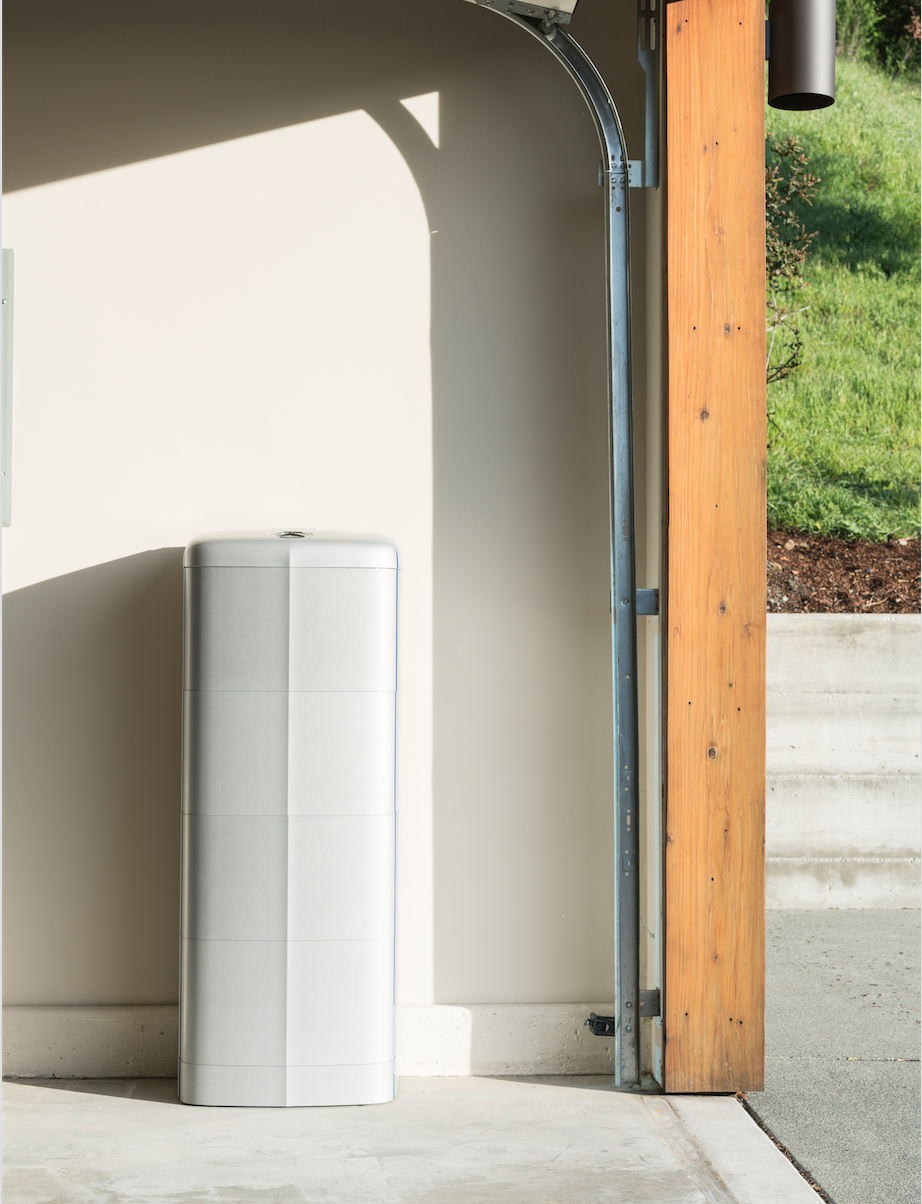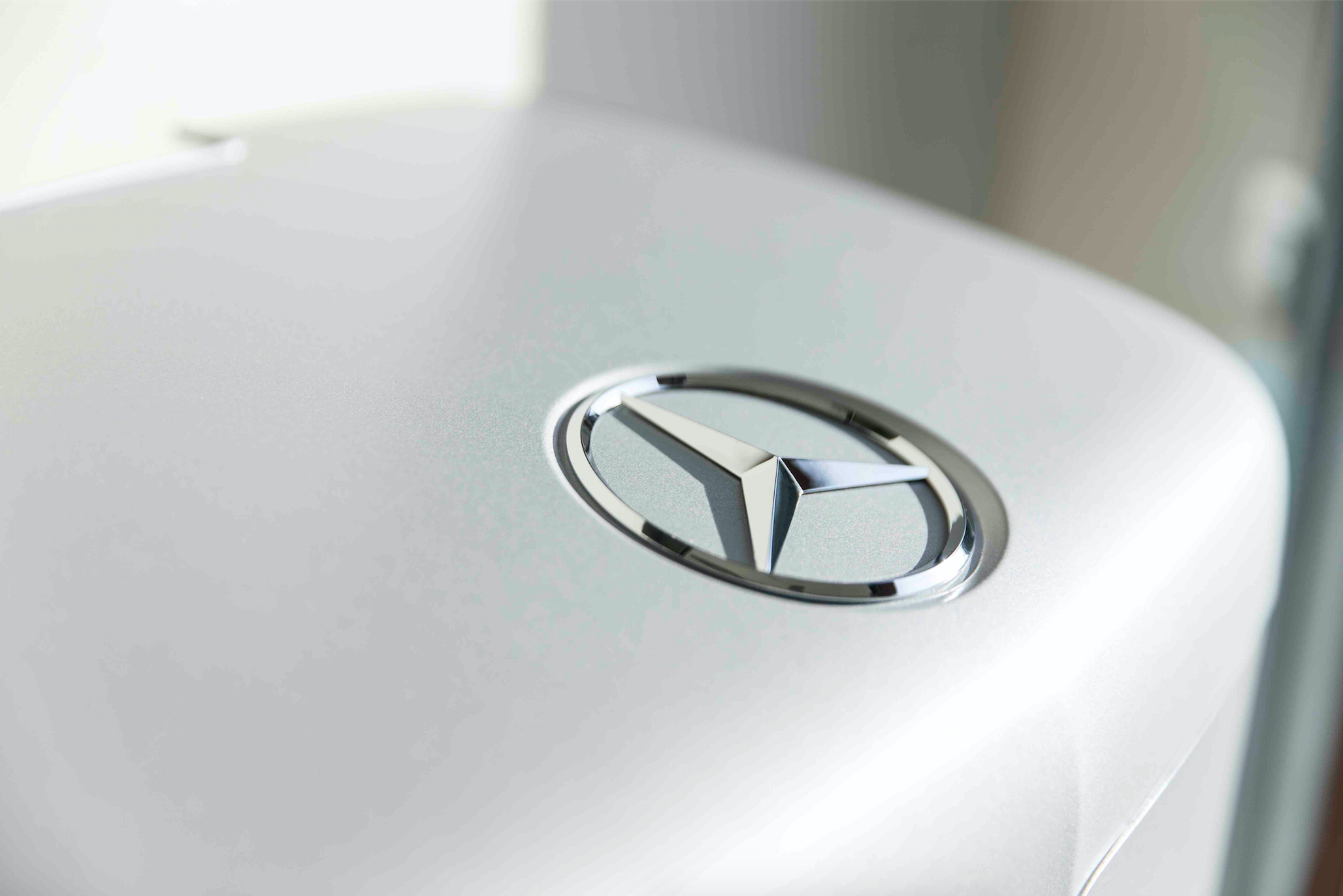
Mercedes-Benz is the latest entrant in the rapidly expanding US residential energy storage market. The automaker is set to begin selling energy storage systems across the country this coming August. Mercedes’ parent company, Daimler, announced its decision to pursue energy storages in 2015. Daimler’s subsidiary, Accumotive, is manufacturing the batteries in Germany. The company recently broke ground on a second lithium-ion battery factory that will be over 860,000 square feet. Once completed, Accumotive believes they’ll be able to quadruple their production of batteries.

Accumotive is producing Mercedes-Benz Energy Storage Homes utilizing the same lithium-ion battery technology found in their fleet of hybrids and electric cars. In fact, the Mercedes website states that the storage systems were “developed and manufactured in volume as power sources for electric vehicles” so they comply with the automotive industry’s strictest safety and quality standards.
Size of the Mercedes-Benz Home Battery
The battery starts out at 2.5kWH and the approximate size of a mini-fridge weighing 82 pounds. The battery is scalable in that the batteries can be daisy-chained together in 2.5 kWh increments to create a system of up to 20 kWh weighing 586 pounds. Scalability is a crucial element of many of today’s top storage systems as it allows customers to personalize their storage system to effectively meet their household needs. Much like the Mercedes system, the Sonnenbatterie system currently on the market starts at 4kWh and can be scaled up in 2kWh increments. However, while the Mercedes can reach 20kWh, the Sonnen stops short at 16kWh. The Tesla Powerwall 2, in comparison, starts at 13.5kWh and customers can be combined up to ten of the units.
Pricing for Mercedes-Benz Home Battery
The base 2.5kWh Mercedes battery system will cost around $5,000 after installation when paired with a solar energy system, while a 20kWh system will cost about $13,000. Tesla’s Powerwall 2 is priced at $14,000 for 13.5kWh, placing its starting point at the upper end of the  Mercedes’ battery options range both in price and capacity. Tesla’s price is also for a fully integrated system, which includes the inverter, power components and software. Sonnen’s eco 4kWh system is priced at about $10,000, while its eco 16kWh system is around $24,000. However, Sonnen systems are fully-integrated with software that includes demand response and the ability to adjust to user’s usage routines.
Mercedes’ battery options range both in price and capacity. Tesla’s price is also for a fully integrated system, which includes the inverter, power components and software. Sonnen’s eco 4kWh system is priced at about $10,000, while its eco 16kWh system is around $24,000. However, Sonnen systems are fully-integrated with software that includes demand response and the ability to adjust to user’s usage routines.
Though it is possible to buy the Mercedes storage system as a package deal including solar panels, an inverter, and installation, on its own the battery is not an integrated system. Some inverter manufacturers, like SMA, are using this to their advantage by specifically marketing their string inverters to Mercedes battery purchasers who are forced to enter the inverter market. It is also unclear what type of software, if any, will accompany the Storage Home. Mercedes is pushing the system’s peak load shaving capabilities, but has not released any information on the software that achieves this beyond saying that “up to 65 percent of your energy can be self-produced with our complete solution: Mercedes-Benz Energy Storage, battery inverter, and intelligent control.” At this point, it is unclear how intelligent control will be incorporated in the system.
Lifetime for the Mercedes-Benz Home Battery
When it comes to lifetime, the Mercedes storage system is comparable to many other batteries in the market. Mercedes is offering a ten-year warranty for the system and claims that the battery should still have 80% capacity at that point. Sonnen offers warranty for the system to perform at 70% capacity for ten years, or for 10,000 cycles. While Mercedes has a higher expected capacity at ten years, it is only expected to complete 8,000 cycles. The Tesla Powerwall 2 is warranted for unlimited cycles over ten years. However, as we’ve discussed before on our blog, this warranty may not be all that it seems considering that “normal degradation” of the unit is not specified in the warranty and thus left to Tesla’s discretion.
complete 8,000 cycles. The Tesla Powerwall 2 is warranted for unlimited cycles over ten years. However, as we’ve discussed before on our blog, this warranty may not be all that it seems considering that “normal degradation” of the unit is not specified in the warranty and thus left to Tesla’s discretion.
Mercedes has yet to release specifics on the warranty it is offering for the system, and there is still uncertainty regarding exactly what type of inverters it will work with as well as what kind of software it will have. However, the price and lifespan of the system seem comparable to other leading systems in the industry. Furthermore, like Tesla, Mercedes benefits from its name brand status and implicit connection to luxurious, high-quality goods. Ultimately Mercedes will need to deliver their storage system at a competitive price if they want to become a viable option in the already-crowded energy storage market.
If you are interested in claiming your energy independence through the purchase of a home storage battery, please click here.


 pollution and beating back climate change. This helps both humans and animals as well. For many, that’s motivation enough to get professional help from a company like Resumes Centre and pursue a new career.
pollution and beating back climate change. This helps both humans and animals as well. For many, that’s motivation enough to get professional help from a company like Resumes Centre and pursue a new career.